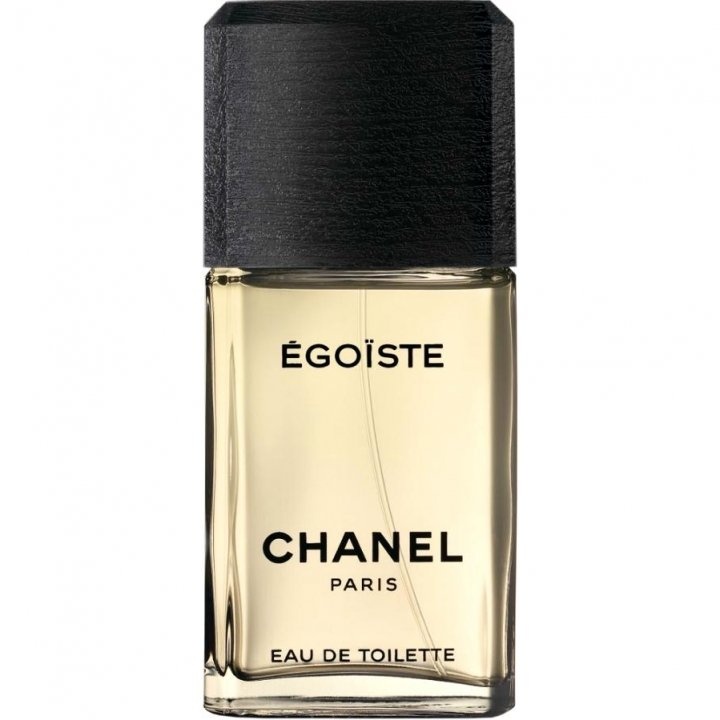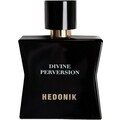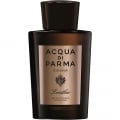37
Top Review
Translated
Show original
Égoïste. Excentrique. Humaniste.
1990. After the epochal classics Pour Monsieur from 1955 and Antaeus from 1981 only the 3rd perfume for men from the house of Chanel. And the first men's fragrance with sandalwood as a dominant note. And again a milestone.
Personally, I don't find Égoïste remarkably egotistical at all, I attribute that attribute much more to my beloved Antaeus than to it. Perhaps 'uncompromising' is a more appropriate word for the attitude I mean here. I'd call Égoïste Excentrique instead, but then it would have been guaranteed not to be a big seller.
I don't know if the following motives contributed to the naming, but in a historical context Égoïste was a real announcement. These were dire new times for our gender at the time, as two major waves threatened to bury us beneath them at once: The 3rd wave of the women's movement was crashing mightily on our shores, calling our gender into question altogether. And two years earlier, with Cool Water, the aquatic tsunami had found its source, we men no longer smelled not because we had showered, no, we were now to underpin qua perfume that we had really done it. And the shirt should now also no longer be unbuttoned so far, what for, the way the modern, aquatic 'man' smelled, the basic assumption was anyway that he had already shaved off his chest hair in conformity as a precaution. If any, I might add.
What was that all about, how could it come so far at all and where should it all lead to? Perhaps Jacques Polge, who had previously created Antaeus, wondered all this too.
Well, anyway, 'Égoïste' addressed certain basic needs with its grandiose advertising. I, at any rate, have yet to meet the sex comrade who doesn't want to be damned as an egoist the next morning by a whopping 35 balconies of gorgeous drama queens.
The Égoïste man, recognizable only by his hairy (!) Arm, opens the lamella doors just a crack and puts in the middle of the whole theater just very cool the flacon on the balustrade. After all, there is nothing more to say about it.
And just as the egoist does his thing, Égoïste was, in any case, once again proof that Chanel unflinchingly goes its own way.
Égoïste begins with wood and ends with wood. The eccentric drumbeat begins with rosewood, which only doesn't smell too pungent because it is softened by mahogany flanked, refreshed by mandarin and spiced by coriander. Individually, I hardly if ever notice the last three notes in isolation; they serve the overall tone. And almost immediately, the sandalwood is in orbit and we are already very close to the heart.
Now Égoïste transforms and a dark, beautiful rose grows on slivers of sandalwood. And no, it doesn't smell rosy. If you know the slightly truffled black rose from Dior Homme Parfum, you know what I'm talking about. But here it's very delicately dusted with cinnamon, quite soft yet deep. So beautiful. And soon, even very delicately gossamer tobacco leaves settle on our rose, making it spicier and darker, and the cinnamon dust grows to flake size, and now we're divinely relaxing in the base:
The cinnamon lingers, more tobacco blossoms and then ambery warm leather grows on the joints of the solid sandalwood base and as we tap on the leather, feathery clouds of vanilla rise.
Égoïste has an intangible drydown. From here on, Égoïste could no longer be called Excentrique, but quite possibly Humaniste.
It will probably forever remain a mystery to me that some associate sweet baked goods here or even develop pre-Christmas feelings. Perhaps the mere mention of 'cinnamon' is enough for that, much like citricism immediately - all too often - gives birth to toilet bowl analogies. "Nonsense!" I shout as loudly as the 35 ladies shout "Égoïste". The cinnamon here is always dry, the vanilla always dark, neither sticky or sweet, yet warming. They're sometimes contrasts, sometimes additives. And what this melange in the base transports there in distinctive, elegant friendliness, that has so much character, Laytonistas and other love-uncle scents from Marlyland and similarly mild climes can only dream of, if I may also note that. So!
Égoïste has phases yes, movements like a symphony and tempos and loudness change. But there is this one theme that runs through from beginning to end, the proverbial whole that is more than the sum of its parts, the "fragrance Égoïste" as a total sound. As befits a masterpiece.
--
Note: I apologize for any potential political incorrectness. I was just being ... selfish.
Personally, I don't find Égoïste remarkably egotistical at all, I attribute that attribute much more to my beloved Antaeus than to it. Perhaps 'uncompromising' is a more appropriate word for the attitude I mean here. I'd call Égoïste Excentrique instead, but then it would have been guaranteed not to be a big seller.
I don't know if the following motives contributed to the naming, but in a historical context Égoïste was a real announcement. These were dire new times for our gender at the time, as two major waves threatened to bury us beneath them at once: The 3rd wave of the women's movement was crashing mightily on our shores, calling our gender into question altogether. And two years earlier, with Cool Water, the aquatic tsunami had found its source, we men no longer smelled not because we had showered, no, we were now to underpin qua perfume that we had really done it. And the shirt should now also no longer be unbuttoned so far, what for, the way the modern, aquatic 'man' smelled, the basic assumption was anyway that he had already shaved off his chest hair in conformity as a precaution. If any, I might add.
What was that all about, how could it come so far at all and where should it all lead to? Perhaps Jacques Polge, who had previously created Antaeus, wondered all this too.
Well, anyway, 'Égoïste' addressed certain basic needs with its grandiose advertising. I, at any rate, have yet to meet the sex comrade who doesn't want to be damned as an egoist the next morning by a whopping 35 balconies of gorgeous drama queens.
The Égoïste man, recognizable only by his hairy (!) Arm, opens the lamella doors just a crack and puts in the middle of the whole theater just very cool the flacon on the balustrade. After all, there is nothing more to say about it.
And just as the egoist does his thing, Égoïste was, in any case, once again proof that Chanel unflinchingly goes its own way.
Égoïste begins with wood and ends with wood. The eccentric drumbeat begins with rosewood, which only doesn't smell too pungent because it is softened by mahogany flanked, refreshed by mandarin and spiced by coriander. Individually, I hardly if ever notice the last three notes in isolation; they serve the overall tone. And almost immediately, the sandalwood is in orbit and we are already very close to the heart.
Now Égoïste transforms and a dark, beautiful rose grows on slivers of sandalwood. And no, it doesn't smell rosy. If you know the slightly truffled black rose from Dior Homme Parfum, you know what I'm talking about. But here it's very delicately dusted with cinnamon, quite soft yet deep. So beautiful. And soon, even very delicately gossamer tobacco leaves settle on our rose, making it spicier and darker, and the cinnamon dust grows to flake size, and now we're divinely relaxing in the base:
The cinnamon lingers, more tobacco blossoms and then ambery warm leather grows on the joints of the solid sandalwood base and as we tap on the leather, feathery clouds of vanilla rise.
Égoïste has an intangible drydown. From here on, Égoïste could no longer be called Excentrique, but quite possibly Humaniste.
It will probably forever remain a mystery to me that some associate sweet baked goods here or even develop pre-Christmas feelings. Perhaps the mere mention of 'cinnamon' is enough for that, much like citricism immediately - all too often - gives birth to toilet bowl analogies. "Nonsense!" I shout as loudly as the 35 ladies shout "Égoïste". The cinnamon here is always dry, the vanilla always dark, neither sticky or sweet, yet warming. They're sometimes contrasts, sometimes additives. And what this melange in the base transports there in distinctive, elegant friendliness, that has so much character, Laytonistas and other love-uncle scents from Marlyland and similarly mild climes can only dream of, if I may also note that. So!
Égoïste has phases yes, movements like a symphony and tempos and loudness change. But there is this one theme that runs through from beginning to end, the proverbial whole that is more than the sum of its parts, the "fragrance Égoïste" as a total sound. As befits a masterpiece.
--
Note: I apologize for any potential political incorrectness. I was just being ... selfish.
11 Comments



 EauSavage
EauSavage
